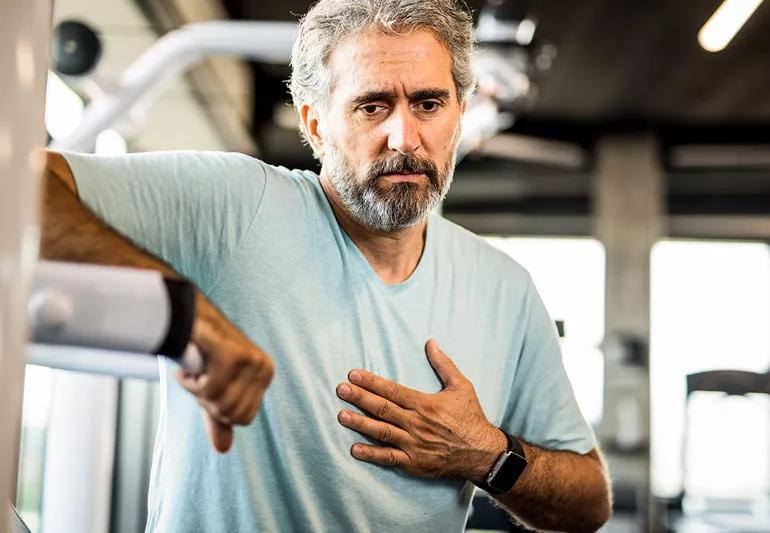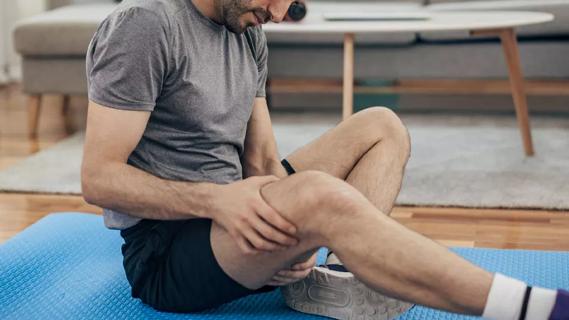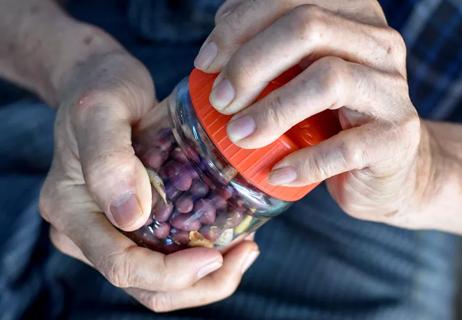Seven doctor-approved ways to ease the pain

You finally said goodbye to bronchitis and its earth-shaking cough. But now, you’re left with rib muscle pain that taunts you with every breath. Or, maybe you were a little too enthusiastic about that new exercise program, and the muscles between your ribs won’t stop screaming in protest. What’s going on? You could be dealing with an intercostal muscle strain.
Advertisement
Cleveland Clinic is a non-profit academic medical center. Advertising on our site helps support our mission. We do not endorse non-Cleveland Clinic products or services. Policy
“Intercostal muscle strain can be scary if you don’t know its cause, and it feels quite intense,” says internal medicine specialist Janet Morgan, MD.
So, what are intercostal muscles — and how do you strain them? Keep reading to learn more about this common condition and what you can do to alleviate the pain.
Your intercostal muscles are the muscles between your ribs. They allow your ribcage to expand and contract so you can breathe. But if they stretch too far or tear, intercostal muscle strain is the end result.
You can strain the intercostal muscles suddenly or by doing certain movements over and over.
Common causes include:
“Breathing can be painful, especially deep breaths,” says Dr. Morgan. “But what muddies the picture is that sometimes, painful breathing can be a sign of something serious, such as pneumonia or a blood clot in the lung. So we often end up doing X-rays to make sure there isn’t something else going on.”
Intercostal muscle strain is one of the most common causes of musculoskeletal chest pain. But age or a sedentary lifestyle can place you at higher risk. “Someone who’s older with thinner muscles could strain rib muscles a lot easier than someone who works out and has built up their muscles,” notes Dr. Morgan.
Advertisement
Because intercostal muscle strain and pneumonia both cause chest pain, it can be hard to know the difference. But there are some telltale signs:
Dr. Morgan notes that intercostal muscle strain is more tender and painful when you touch the affected area. “Pain when you twist or bend over can also be a sign,” she notes. “But these symptoms aren’t a 100% guarantee that it’s an intercostal muscle strain, so still keep pneumonia in the back of your mind.”
Other symptoms of an intercostal muscle strain include:
Dr. Morgan urges you to avoid self-diagnosis, especially if the pain is severe. “I’d rather people have their provider make that call than assume they’re OK. We need to hear the whole constellation of symptoms to rule out something more serious, such as rib fracture or even cancer,” she says. “It’s important to check in with your provider via phone or a virtual visit to make sure nothing is missed.”
While you await your appointment, Dr. Morgan recommends these steps to take the edge off:
If home remedies and rest aren’t enough, your doctor may recommend:
Even with your provider’s help, muscle strains of any kind take about four to six weeks to completely heal. But with patience and time, you’ll be pain-free before you know it.
Advertisement
Learn more about our editorial process.
Advertisement

Whether it’s crushed ice, a chilled gel pack or frozen corn, you’ve got options

Getting close to their care team, investing in accessibility and implementing safe sleeping practices are just a few ways to support your child’s growth and development

Your child’s care team, nonprofit organizations, patient groups and more are here to support you

Stretching, heating pads and massage guns can provide quick relief

Turns out your health really is in your hands

Babies can get congested easily, but you can calm their cough by keeping them hydrated, using nasal drops and running a humidifier

Honey can help relieve a cough by lowering inflammation in your airways and loosening up mucus

Dry coughs mean irritation, while wet coughs mean mucus

Wearing a scarf, adjusting your outdoor activities and following your asthma treatment plan can help limit breathing problems

Your diet in the weeks, days and hours ahead of your race can power you to the finish line

When someone guilt trips you, they’re using emotionally manipulative behavior to try to get you to act a certain way